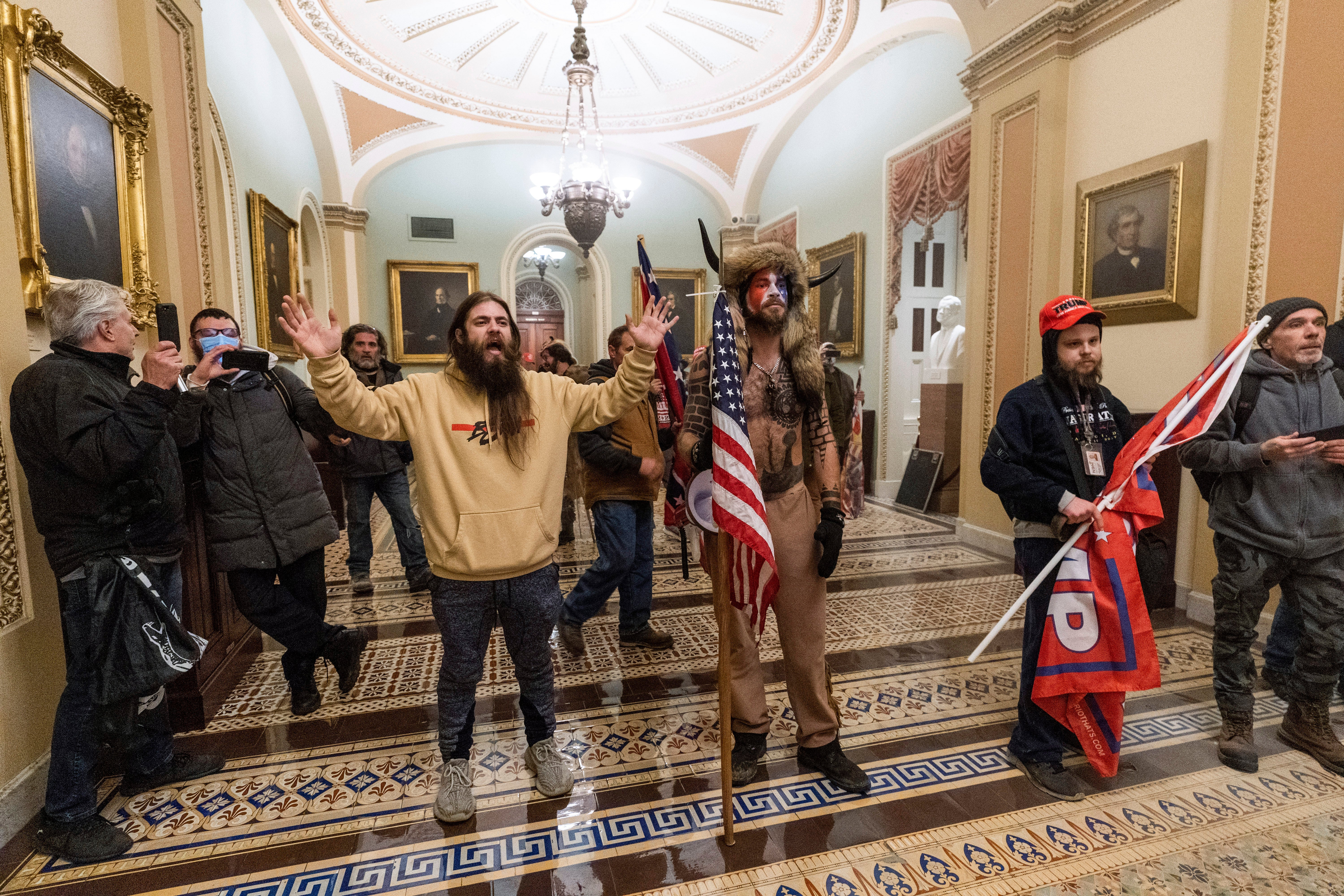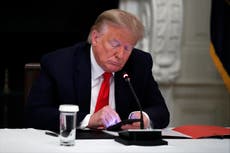After the Capitol riots, Joe Biden faces the challenge of restoring faith in US democracy
It’s not the first time the Capitol has seen violence in its history. But, writes Sam Edwards, the damage done by Trump’s angry mob means the president-elect has a long, difficult path ahead of him


In a powerful cautionary tale first published in 1935, the author Sinclair Lewis imagines a world in which a populist authoritarian wins the presidency of the United States and then embarks upon the establishment of totalitarian rule with the aid of a violent private militia, the “Minute Men”.
Written amidst the global tumult of the 1930s, which in Europe saw the rise of various fascist dictatorships, Sinclair’s dystopian vision challenged contemporary American complacency regarding the strength and resilience of the nation’s democratic institutions. Titled, It Can’t Happen Here, Sinclair’s point was, of course, to declare that it could.
On January 6, 2021, a mob of pro-Trump supporters, outraged by the recent electoral victory of Joe Biden and incited to violence by “their” candidate, marched on the Capitol, breached security, and desecrated the home of American democracy.
To be sure, the Capitol has seen violence before. But not since 1814 has the home of Congress been overrun, occupied, and vandalised. And on that occasion the perpetrators were an invading foreign power – the British. In the words of the president-elect, what happened on Wednesday bordered on sedition; for other commentators it was nothing less than an attempted insurrection.
What are we to make of Wednesday’s chaotic scenes, and what does this all mean for the challenges that still lie ahead for the incoming Biden administration? Here are three observations.
First, this assault on democracy will have profound consequences for the American image in the world (already tarnished by four years of Donald Trump) and will make a key goal of President-Elect Biden – to re-establish American global leadership – even harder.
How is Biden to rehabilitate the idea of the United States as a force for good, as an exemplar, as a “city upon a hill”, if not even the inner sanctum of American democracy – the Capitol – is secure from violation by the followers of a demagogue?
We should recall here that the entire post-1945 global order was established by President Franklin D Roosevelt (and by his successor, Harry Truman) with reference to the founding ideals of American democracy, not least amongst which was the absolute significance of the peaceful transition of power, something which had so concerned the constitutional architects of the 1780s.
On Wednesday, a defeated but still incumbent president, unhappy with the result of a free and fair election, mobilised a violent mob in an effort to intimidate the elected officials whose job it was to validate the November vote. On what grounds – from this day on – can any subsequent American president leverage their moral authority to help defend the fundamental processes of democracy overseas?
With populist passions unleashed across the world, with tyrants empowered and the traditions of inter-state cooperation foundering, exactly how is Joe Biden now to restore faith in what had once been an American-led global order? I for one sincerely hope that he finds a way. But after the events of Wednesday his task, which is already difficult, has become still more challenging.
Second, amongst all the shock at what unfolded on Wednesday one sad truth has become somewhat marginalised. For the Capitol, this sustained and unlawful assault by a violent mob was certainly unprecedented. But this is not the same as saying that such violence is entirely unknown in the annals of American political history.
Put differently, and contrary to what some have argued, Wednesday’s violence was not “un-American”. African-Americans, especially in the south, have known this first hand for generations. They have seen white mobs riot before. They have seen racist vigilantes discard or deny the constraints of the constitution. They have seen lynchings, and voter intimidation, and legally sanctioned police brutality. They have seen the institutions and stated ideals of American democracy undermined, ignored, assaulted.
Indeed, what happened on Wednesday was in essence a replay – albeit it at the symbolic home of American democracy – of what happened in locations across the south in the aftermath of Reconstruction (the period which followed the US Civil War): democracy denied and violence enshrined by white supremacists determined to prevent Black participation in American society.
In short, American politics has long been violent and its democratic structures at times fragile. Any hope of changing this will require more than just the calm statesmanship of the president-elect; it will require the concerted attention of all branches of government, at all levels. And it will take time, well beyond the next four years of the Biden presidency.
Third, for those Americans who, in their vote for Joe Biden, have now repudiated four years of Trumpism, the on-going fight back will be immensely difficult. One image in particular brings this home: the distressing sight of the Confederate flag being paraded through the corridors of Congress. That flag – and the man who carried it – has of course now been removed. The Capitol has been secured and the mob cleared. But the beliefs, politics and values which that flag enshrines – at its root, of race hate – remain.
One might argue that even before that deeply offensive symbol crossed the threshold and passed through Statuary Hall (a feat it failed to achieve during the Civil War), aspects of what it represents had already taken up residence in this home of American democracy.
For Biden, and for any American committed to realising what the great abolitionist Frederick Douglass called the “promise” of America, the task of the next four years (and beyond) must surely be to remove from the hallowed halls of Congress, by democratic due process, all those Trumpian enablers and fellow-travellers who in word, thought and action had breached the Capitol long before the mob arrived.
But a word of hope. For there are at least early signs that this process of renewal has already begun: on the very same day that a mob stormed Congress, Reverend Raphael Warnock became the first Black Democratic senator elected from the south (and the first Black senator from Georgia). He will be joined in the Senate chamber by fellow Democrat, Jon Ossoff, a Jewish American former investigative journalist.
In doing so, the Democrats have done something remarkable: very soon they will control the Oval Office, the Senate, and the House. And to a significant degree these victories are the result of the courage and commitment of Black voters and the energy and activism of those such as Stacey Abrams, the lawyer and politician who in Georgia did so much to turn out the Democrat vote.
For Biden, for the Democrats, and indeed for anyone who hopes to see the return of the United States as a progressive force in global politics, the path onward remains long and difficult, and there are still many political battles to be fought.
But there is a glimmer of hope here; the possibility of a better, brighter, tomorrow now lies just within sight.
Dr Sam Edwards is a reader in history at Manchester Metropolitan University




Join our commenting forum
Join thought-provoking conversations, follow other Independent readers and see their replies
Comments